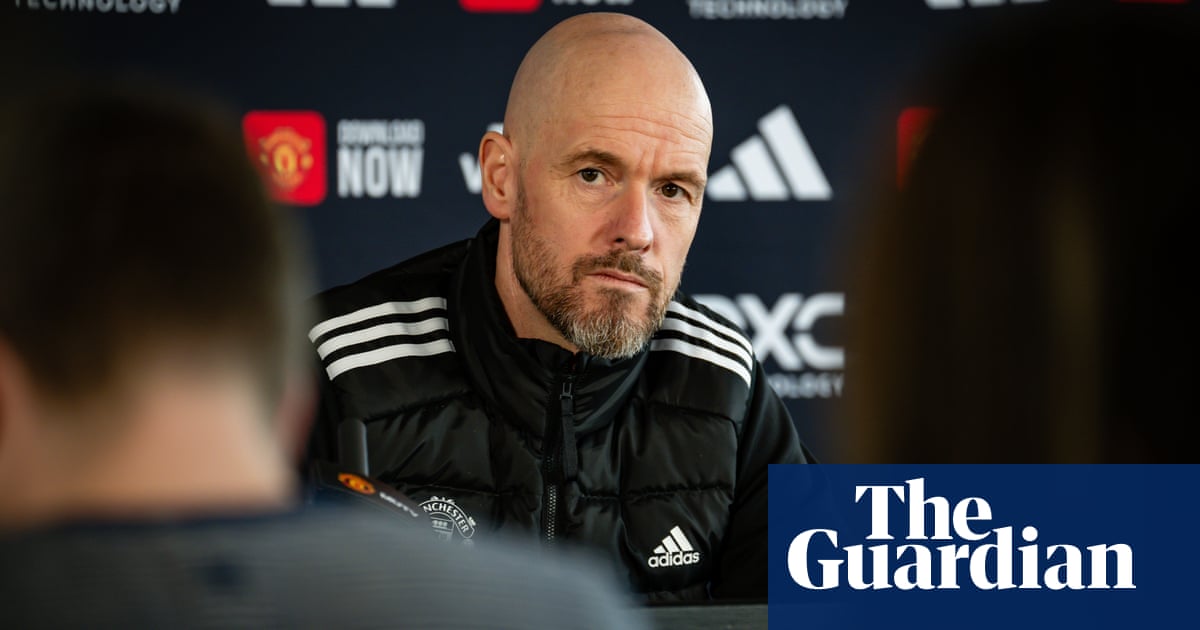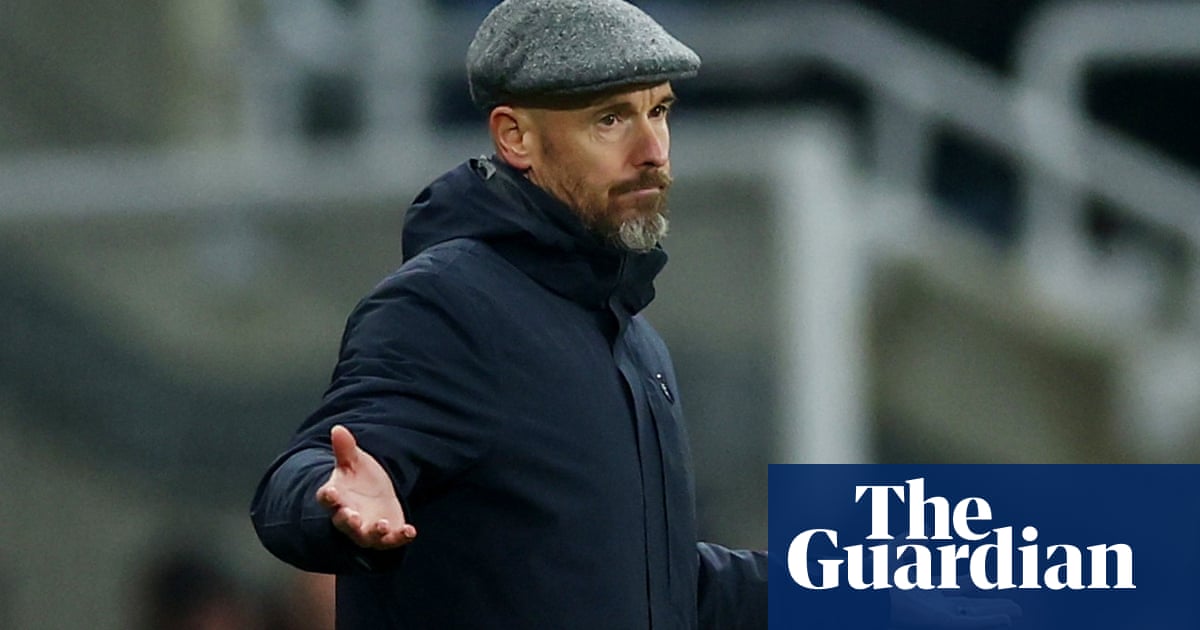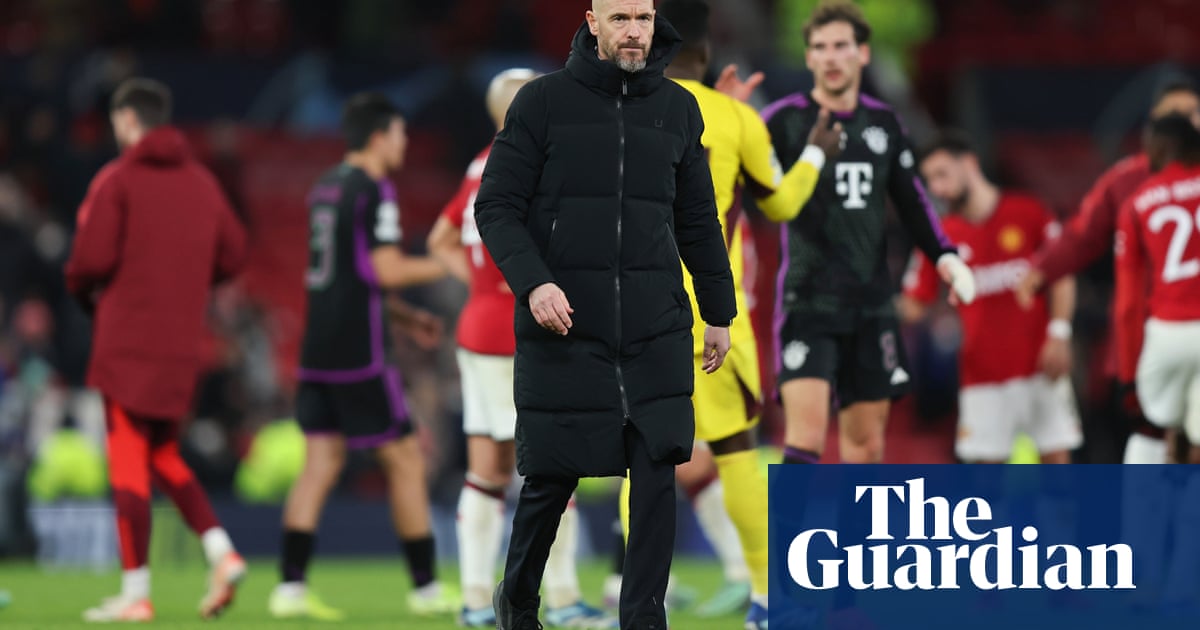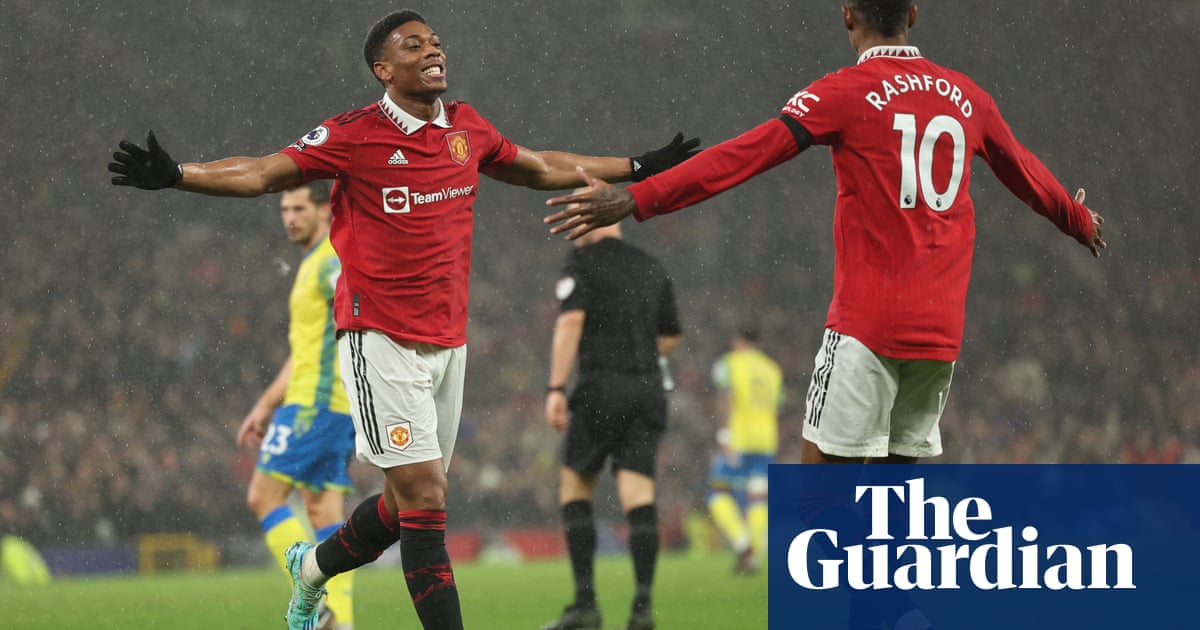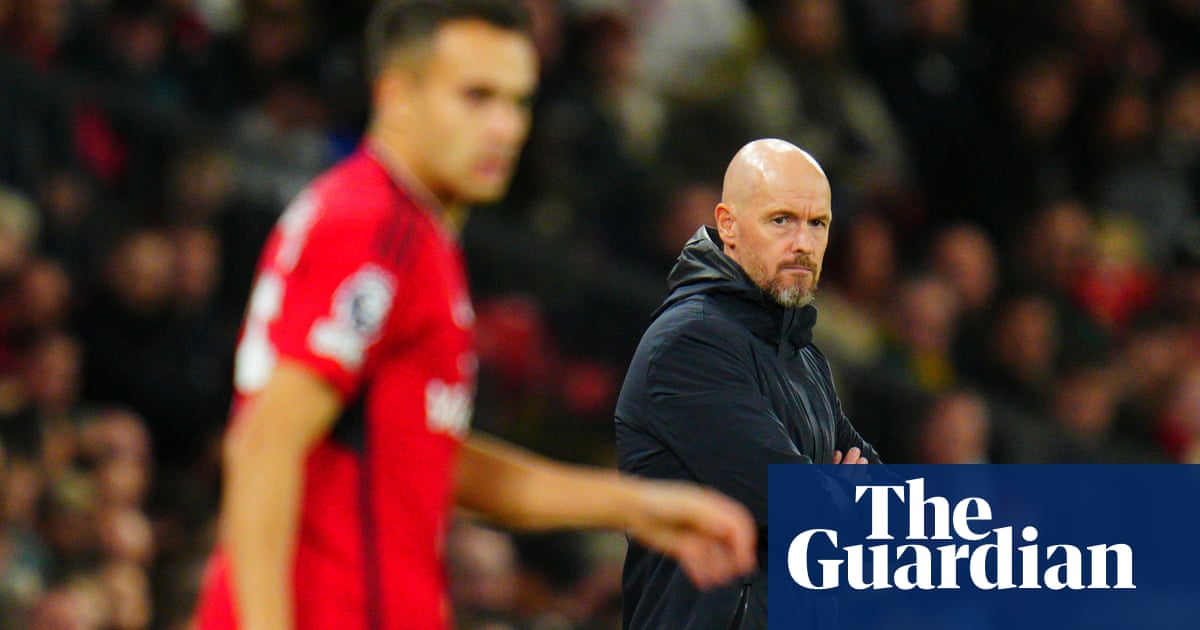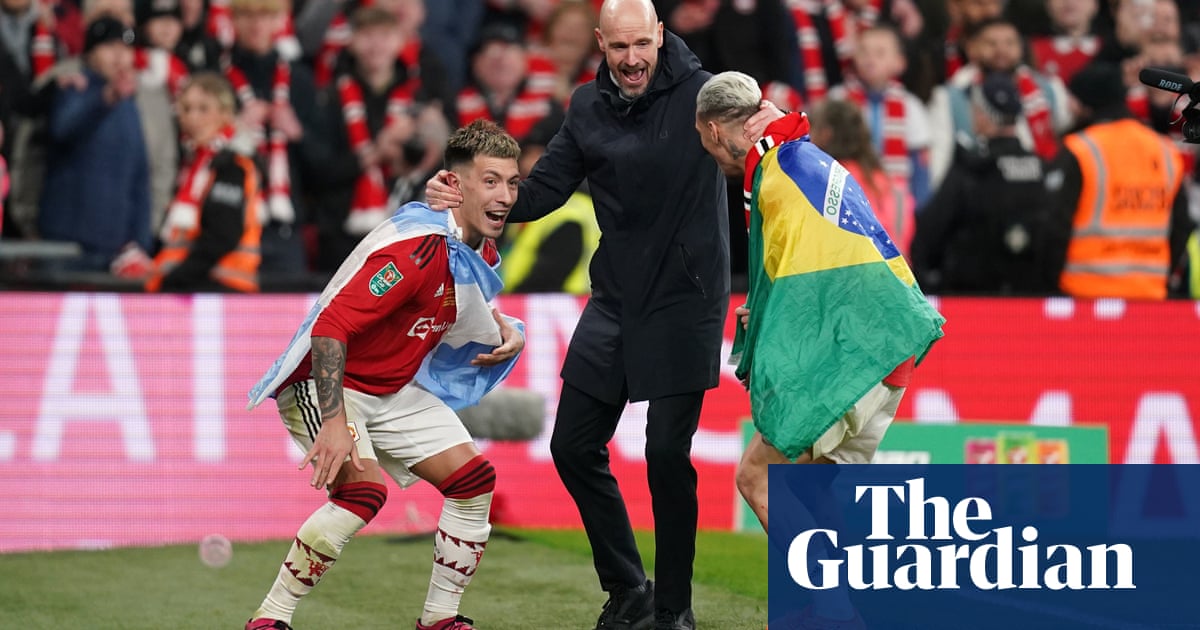
There was a funny moment at the end of this controlled, slow-burn, oddly inevitable Manchester United Wembley victory. As the final whistle blew and the players fell to their knees and shrieked and yelped, Diogo Dalot found himself running past the slender figure of Erik ten Hag, who was basically just standing there, hands still in his coat pockets.
Dalot howled and danced and flexed his neck muscles, apparently expecting some kind of answering victory frenzy. Ten Hag politely shook his hand. Dalot froze, yelped some more, then basically ran off.
Ten Hag did come on to the pitch. A bit later he was even seen dancing with Lisandro Martínez – under some duress, but gamely jigging from side to side, like a dad at a wedding disco submitting to the obligations of gaiety.
It felt like a fittingly hair-shirted moment, a note of slightly showy limelight-aversion at what was arguably – with all due apologies to the Dutch league – the greatest moment of his managerial career.
Football loves to deal in eras and cultures and wider sweeping narratives. What is so striking about Ten Hag’s success at United is that it has come quietly, in details and marginal gains, the sense of finally having a grownup in the room. How far can he take this thing?
It felt significant that this was a slightly undercooked final, without any obvious peaks or moments of jeopardy, decided by a set piece and an own goal in the first half. This is fine. Finals aren’t meant to be good. They’re meant to be won.
The most significant on-field presence was Casemiro, who was assertive and incisive at the base of midfield. The other key peg in this victory was Wout Weghorst, who led the attack in the opening half‑hour, and who really does seem to have his own magic touch.
Since Weghorst arrived in January United have won a trophy, beaten Barcelona and Manchester City, gone clear in the top four, and drawn the attention of the world’s most lavish football petro-power, currently out there promising to rebuild the stadium, lasso the moon, capture the frost, steal the song from the birds, buy Adrien Rabiot, whatever. All of this in the Wout era. This man is gold dust. Don’t sign him up. Hang him above the stadium clock.
And so we have the usual dance of marrying the excitements of the present with the certainties of the past. A soft-pedalled 2-0 defeat of a slightly vague looking Newcastle may or may not signal the dawning of the new red age, as is always the lurking expectation at a club that deals only in supremacies, eras, where every other period of success for every other club is in some way an aberration and an interlude.
Is that where we are now? United have won a lot of games, more this season than any other team in the top five leagues. They have a trophy in Ten Hag’s first season. Some disparate parts are beginning to whizz and purr into gear. Mainly there is an absence of fear in the air. United were poor in the opening 20 minutes. It didn’t matter. They still looked and felt and played like a team that knew how to win. Shedding the past has been such a prolonged and difficult process. Maybe enough time has passed now for this to be a conversation about the present, even the future; just not, for once, the past.
Wembley had been a fun, fond, boisterous place before kick-off, the black and white flags of the Newcastle half billowing furiously; and on the pitch lights, colours, flames, soldiers, a rolling wave of static and noise. This is how the late-winter cup final is meant to feel, a light, fizzy affair.
Manchester United started slowly. Newcastle looked bright. In Bruno Guimarães they had the most complete midfield craftsman on either team, a player of rare gifts and deeper gears. In Casemiro, United had a winner. He scored the opening goal, heading in Luke Shaw’s free-kick. And it was 2-0 before half time, Weghorst making it, Marcus Rashford shooting in off Sven Botman’s leg.
Ten Hag stood stationary on his touchline through all of this. United’s manager has been quietly making people look silly for half of the current season. We heard for so long that this club was essentially unmanageable; saw former players cinematically flummoxed, lost for words, wailing and howling around the TV punditry desk like the lost Manchester United sections of The Wasteland.
Maybe United were just unmanageable by bad managers: a spooked David Moyes, a fading José Mourinho, Ole Gunnar Solskjær, official conductor of the Old Trafford heritage tour. It seems that in Ten Hag the board have accidentally appointed the right person. Here, there is a competent guiding hand in his prime, and apparently immune to the noises off.
A second-tier domestic cup may or may not signal the dawning of the age of Erik. But it is its own moment, reward for Ten Hag’s simple competence, the bracingly ascetic manner, the sense, finally, of some guiding intelligence after a decade of entropy and waste.
This already feels distinct from the dead-cat bounce of the Mourinho years, a spark wrung from the embers of what was already there. Whatever its final arc, perhaps this thing can simply rise or fall on its own terms.




